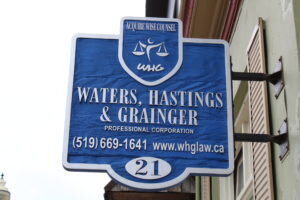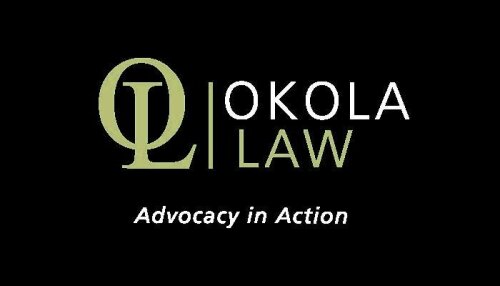Best Whistleblower & Qui Tam Lawyers in Canada
Share your needs with us, get contacted by law firms.
Free. Takes 2 min.
Or refine your search by selecting a city:
List of the best lawyers in Canada
About Whistleblower & Qui Tam Law in Canada
Whistleblower and Qui Tam laws are designed to protect individuals who report misconduct, unethical actions, or illegal activities, particularly within organizations or government entities. In Canada, these laws aim to shield whistleblowers from retaliation and provide mechanisms for reporting wrongdoing. While Qui Tam actions are more prominent in the United States, Canada's legal framework allows for whistleblowers to report fraud against the government through various channels. This area of law is crucial for maintaining transparency and accountability within both the public and private sectors.
Why You May Need a Lawyer
People may require legal assistance in Whistleblower & Qui Tam cases for a variety of reasons. Some common situations include:
- Experiencing retaliation, such as demotion or dismissal, after reporting misconduct.
- Needing guidance on how to confidentially report fraudulent activities without facing legal repercussions.
- Understanding the complexities of filing a complaint with governmental or regulatory bodies.
- Seeking advice on the potential financial or professional consequences of whistleblowing.
- Requiring support in navigating workplace policies and laws that protect whistleblowers.
Local Laws Overview
The legal landscape for whistleblowers in Canada involves various federal and provincial regulations designed to encourage safe reporting of unethical practices. Key aspects include:
- The Public Servants Disclosure Protection Act (PSDPA), which protects federal public sector employees who disclose wrongdoing.
- Provincial laws, such as Ontario’s Whistleblower Protection Act, offering similar protections within provincial jurisdictions.
- Provisions in the Criminal Code of Canada related to protecting employees who report crimes such as fraud or corruption.
- Diversified protections and measures that vary across provinces and territories.
Frequently Asked Questions
What protections do whistleblowers have in Canada?
Whistleblowers are generally protected from retaliation, such as unfair dismissal or harassment. Specific protections can vary depending on the province and the type of disclosure made.
Can whistleblowers remain anonymous?
While anonymity is encouraged, it might be challenging to maintain absolute anonymity due to the nature of the investigations. Legal advice can help in making anonymous or confidential disclosures.
What is the difference between Whistleblower and Qui Tam laws?
Whistleblower laws protect individuals who report wrongdoing, whereas Qui Tam laws, more prevalent in the U.S., allow private individuals to sue on behalf of the government and share in any financial recovery.
Are there financial incentives for whistleblowers in Canada?
Unlike the U.S., Canada does not have a formal system for financial rewards for whistleblowers, although this can vary by specific laws and regulations applicable in certain circumstances or sectors.
How do I prove retaliation at the workplace?
A detailed documentation of events, communications, and any changes in employment status after reporting misconduct can help in establishing a case for retaliation.
What kind of conduct can be reported as whistleblower content?
Reports can include various unethical or illegal acts such as financial fraud, violation of laws, safety hazards, or health violations.
How should I report a potential issue?
You can report to your employer, regulators, law enforcement, or other designated bodies depending on the nature of the wrongdoing and the applicable laws.
What should I expect after reporting a wrongdoing?
After reporting, an investigation will typically be initiated, and you should be protected from any retaliatory actions by your employer.
Do whistleblower protections apply to private sectors?
Yes, while protections primarily focus on public sectors, there are regulations for private sector employees, particularly regarding health and safety or financial misconduct.
How can a lawyer assist me as a whistleblower?
A lawyer can provide guidance on your rights, help document your case, ensure proper legal procedures are followed, and protect you from retaliation or legal consequences.
Additional Resources
Here are some resources and organizations that can provide further assistance:
- Office of the Public Sector Integrity Commissioner of Canada: Handles whistleblower complaints and protects public sector employees.
- Provincial Labour Ministries: Offer guidance and resources for employees in provincial jurisdictions.
- The Canadian Bar Association: Provides resources and guidance on finding legal assistance in whistleblower cases.
Next Steps
If you need legal assistance related to Whistleblower & Qui Tam, consider taking the following steps:
- Document everything: Keep detailed records of all relevant communications and events.
- Consult with a legal professional specializing in whistleblower laws to understand your rights and options.
- Reach out to relevant governmental bodies or regulatory agencies to report the wrongdoing.
- Ensure you are aware of your workplace's whistleblower policies and the legal protections afforded to you under Canadian law.
Lawzana helps you find the best lawyers and law firms in Canada through a curated and pre-screened list of qualified legal professionals. Our platform offers rankings and detailed profiles of attorneys and law firms, allowing you to compare based on practice areas, including Whistleblower & Qui Tam, experience, and client feedback.
Each profile includes a description of the firm's areas of practice, client reviews, team members and partners, year of establishment, spoken languages, office locations, contact information, social media presence, and any published articles or resources. Most firms on our platform speak English and are experienced in both local and international legal matters.
Get a quote from top-rated law firms in Canada — quickly, securely, and without unnecessary hassle.
Disclaimer:
The information provided on this page is for general informational purposes only and does not constitute legal advice. While we strive to ensure the accuracy and relevance of the content, legal information may change over time, and interpretations of the law can vary. You should always consult with a qualified legal professional for advice specific to your situation.
We disclaim all liability for actions taken or not taken based on the content of this page. If you believe any information is incorrect or outdated, please contact us, and we will review and update it where appropriate.
Browse whistleblower & qui tam law firms by city in Canada
Refine your search by selecting a city.















